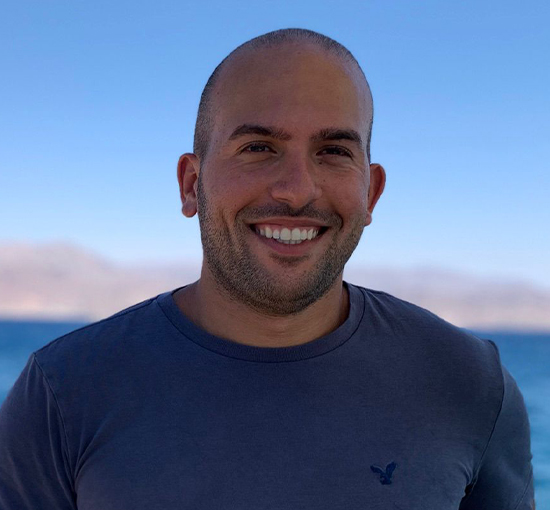
Dean Zadok
Dean Zadok ’19, a master’s student in the Henry and Marilyn Taub Faculty of Computer Science, has used his skills to build an autonomous racecar and beautify facial images. He now focuses his research in the medical arena, aiming to improve robotic prosthetic hands.
Born in Tel Aviv, Dean served in the Israel Defense Forces as a networking team leader in the IT department of the military’s attorney. Upon completing his military service, he left his hometown to earn his bachelor’s degree at the Technion in computer science. Soon he became the first student in his faculty to join the popular Formula Technion team, a student initiative that designs, builds, and races formula style (open wheel) racecars in international racing competitions.
In his first project, he designed a telemetry system to remotely supervise the racecar. Following that success, he recruited a team of computer science students to create a machine learning algorithm that allowed the car to drive on its own without any human intervention. The racecar performed exceptionally well, attracting widespread media coverage and awards. Dean’s team won the Taub Faculty of Computer Science’s 2019 Excellent Project Competition and published a prize-winning scientific paper in SIMULTECH.
After earning his bachelor’s degree, Dean moved to Seattle to intern at the Microsoft Research Lab. He worked on a project that showed how positive human affect, such as smiling, can improve machine learning for autonomous navigation. Following the internship, he returned to Israel to start his master’s studies.
He sought out opportunities in the medical field where he could employ his computer skills to human-related research. He recognized a technological gap in the products available in robotic prostheses, and decided to focus his thesis on finding solutions. He succeeded in developing an ultrasound- and AI-based tool that predicts finer finger motions from arm muscle movements, and showed that they could even detect such gentle movements as playing the piano or typing on a keyboard. His research can serve as a base algorithm to operate prostheses for lower-arm amputees, something that has been researched for years. He hopes to advance the research to develop solutions for different conditions, and become part of the next generation of robotic prostheses.
Alongside his research, Dean volunteers in Professor Alon Wolf’s Biorobotics and Biomechanics Lab and with non-profit Haifa3D to provide 3D-printed prosthetic hands to children and adults with congenital disorders or traumatizing accidents.
Dean plans on pursuing his Ph.D. at the Technion with the goal of contributing to both academia and industry.

